Publications
Articles, publications, books, tools and multimedia features from the U.S. Institute of Peace provide the latest news, analysis, research findings, practitioner guides and reports, all related to the conflict zones and issues that are at the center of the Institute’s work to prevent and reduce violent conflict.
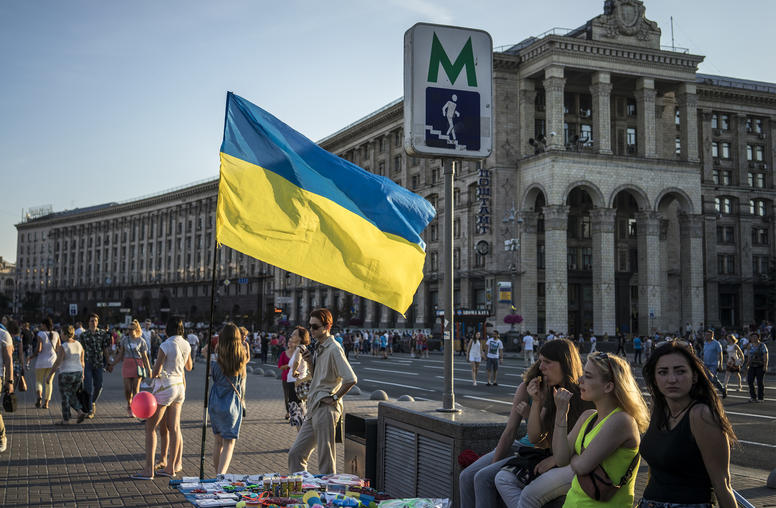
Ukraine’s Elections Could Turn Violent—This is How to Prevent It
Ukraine is facing a busy election season in 2019, with presidential elections on March 31 and parliamentary elections scheduled for October, amid a challenging security context. Many Ukrainians expect turbulent and “dirty” elections with increased tension during the campaign periods, and between Election Day and the likely presidential run-off.
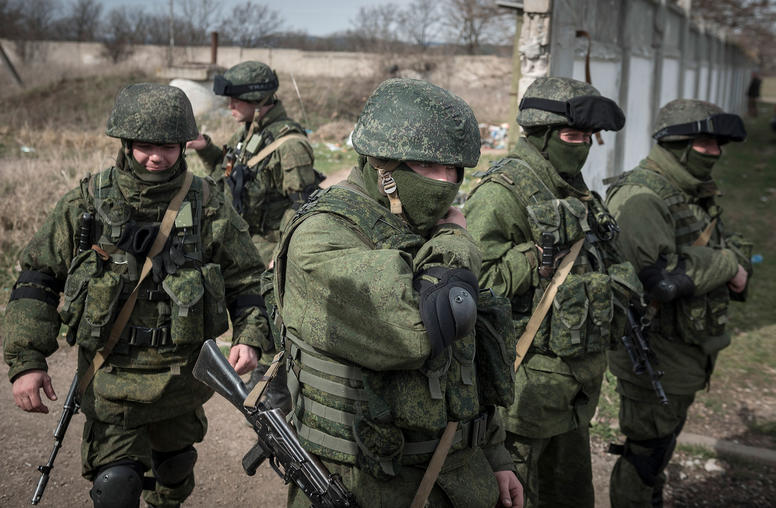
It’s Time to Stand Up to Russia’s Aggression in Ukraine
Five years ago, Russia rolled into Crimea, orchestrated a swift and one-sided referendum, and annexed the Ukrainian territory. The West was blindsided by the attack and slow to provide any response. As a result, Russian President Vladimir Putin launched a second invasion of Ukrainian soil—this one in the country’s east. This attack met stronger resistance, and eventually the West swung into gear to push for a cease-fire and to impose sanctions on Russia. Yet the conflict rumbles on and has killed over 10,300 Ukrainians so far.
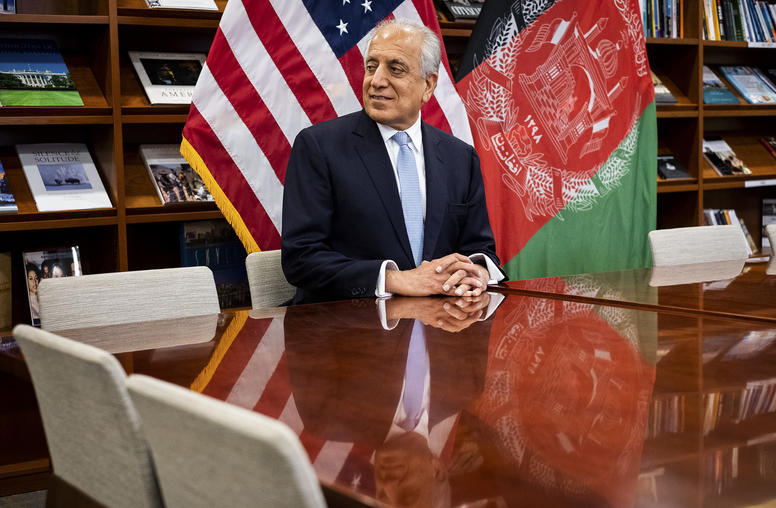
U.S.-Taliban Talks Make ‘Significant Progress’: What’s Next?
After years of stalemate, a framework deal between the U.S. and the Taliban has inspired hope that the Afghan war—the longest in U.S. history—could come to an end. USIP’s Scott Worden analyzes the progress made in recent talks, why the U.S. is now directly negotiating with the Taliban and the implications of further negotiations and a potential peace deal on Afghanistan’s 2019 presidential election.
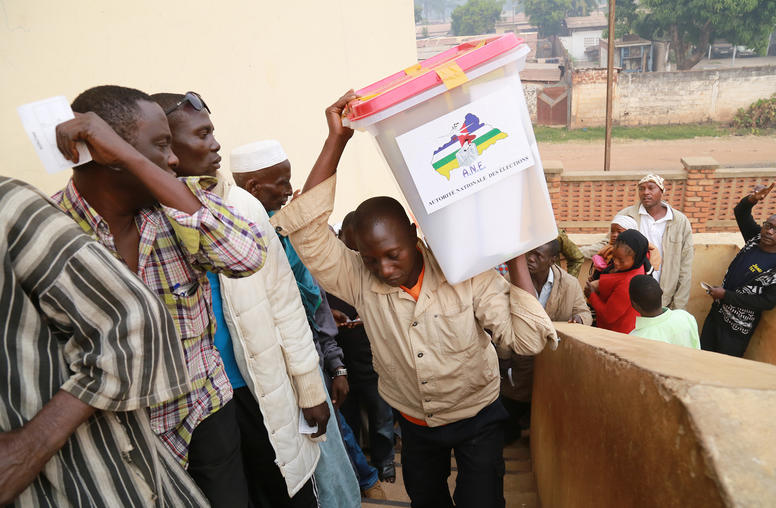
What is the Central African Republic’s Divided Parliament For?
As the U.S. House of Representatives continues to adapt to the leadership of a new speaker, 6,000 miles away, the legislature of the Central African Republic (CAR), the National Assembly, has also recently elected a new leader. However, a change of leadership will not be sufficient to overcome the many challenges and weaknesses faced by this parliament, as the country continues to face rebel groups, communal violence, corruption, and intransigent poverty. The responses of many representatives to recent interviews with USIP raise a more fundamental question: given the context of the CAR, what is a parliament for?
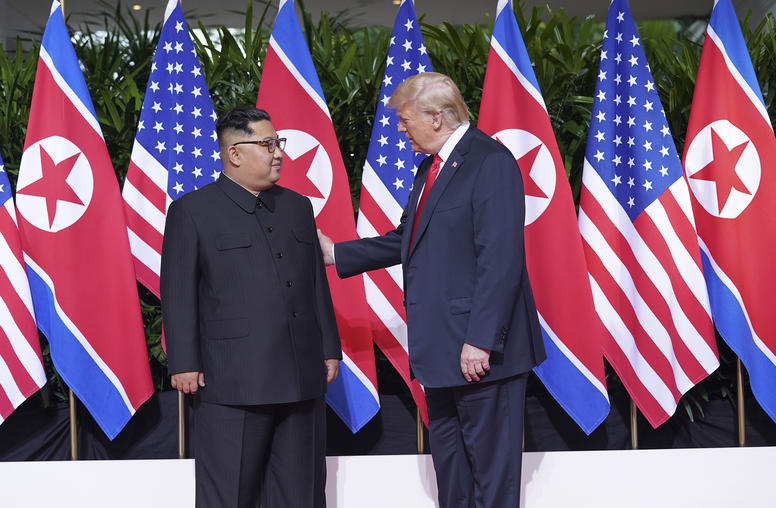
On to Vietnam: What Will Happen at the Second Trump-Kim Summit?
At the State of the Union address this week, President Trump announced that he will again meet with North Korean leader Kim Jong Un at the end of February in Vietnam for their second face-to-face negotiations. The president’s announcement follows recent comments from U.S. Special Representative for North Korea Stephen Biegun indicating that the U.S. is prepared to negotiate on both denuclearization and peace simultaneously—an approach that the Trump and former administrations previously eschewed. USIP’s North Korea and China experts examine the potential shift in U.S. policy and what concerns key regional players have over the next summit.
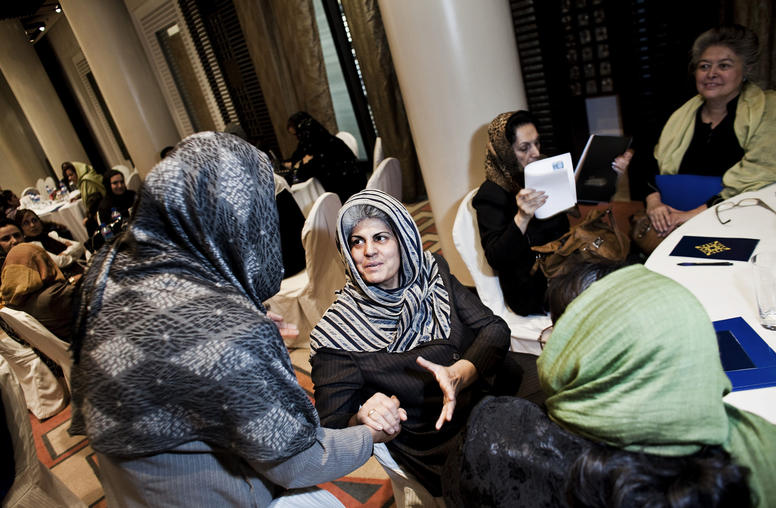
How can we negotiate with the Taliban? Afghan women know.
Afghan political leaders met in Moscow this week with Taliban representatives amid new momentum in diplomatic efforts to end Afghanistan’s war. Like other recent discussions, including those between U.S. envoy Zalmay Khalilzad and Taliban representatives in Qatar, Afghan women remain almost entirely excluded. Yet mostly unnoticed amid the formal diplomacy, Afghan women at their country’s grass roots already have managed negotiations with local Taliban leaders.
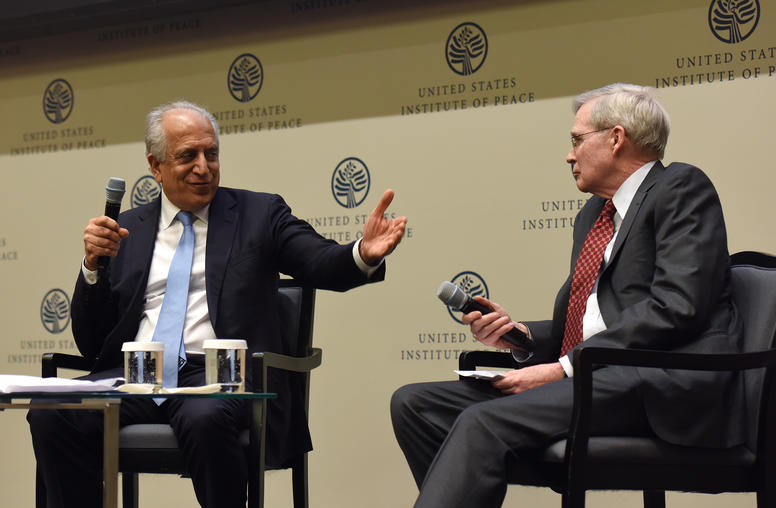
Progress in Taliban Talks, But ‘Long Way to Go’, says U.S. Envoy
Amid a series of positive developments in the Afghan peace process over the last year, a framework for negotiations reached between the U.S. and Taliban has renewed hope that the 17 year-old Afghan conflict could come to a close. Led by Special Representative for Afghanistan Reconciliation Zalmay Khalilzad, the U.S. has agreed in principle to a conditional withdraw of U.S. and allied troops in exchange for the Taliban pledging to not allow Afghanistan to be a safe haven for transnational terrorists, like al-Qaida, as well as agreeing to talks that include the Afghan government and a cease-fire. Despite this progress, “We are in the early stages of a protracted process,” Ambassador Khalilzad said at the U.S. Institute of Peace on February 8. “We have a long way to go.”
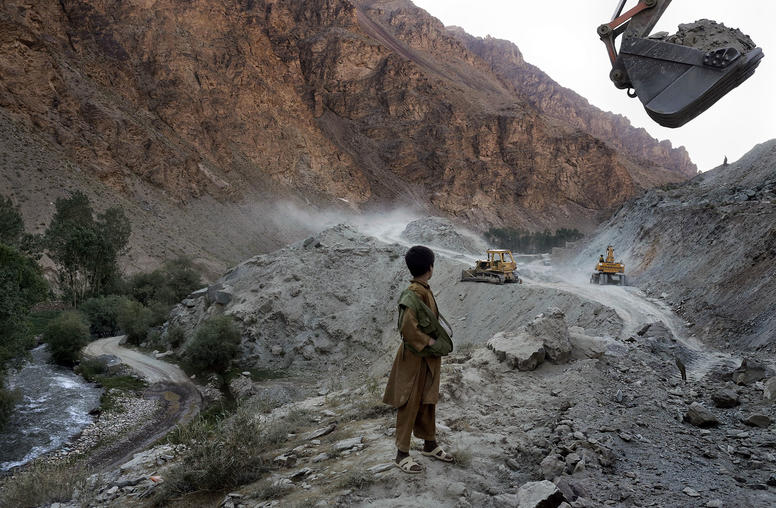
Can Technology Help Afghanistan Avoid the Resource Curse?
Afghanistan’s mineral wealth, roughly estimated at upwards of $1 trillion, is sometimes seen as the country’s potential savior—with prospects to generate large government revenues, exports, and some jobs. On the other hand, international and Afghan experience amply demonstrates the downside risks associated with mineral exploitation—macroeconomic and fiscal distortions; waste, corruption, and poor governance; environmental degradation; and the risk of financing or fomenting violent conflict, thereby undermining peacebuilding. The so-called “resource curse” is not destiny, however, and some countries have managed to avoid it, though Afghanistan faces much greater challenges than most when it comes to beneficially developing its mining sector.
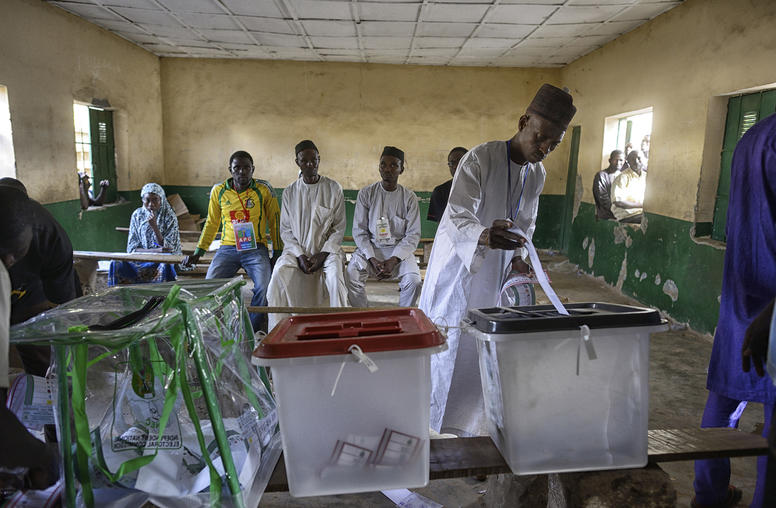
What’s at Stake in Nigeria’s 2019 Elections?
On Saturday, over 84 million eligible Nigerian voters are set to go to the polls to elect their next president and members of the National Assembly, with state-level elections to be held on March 2. Among the 73 presidential candidates, incumbent Muhammadu Buhari and former Vice President Atiku Abubakar are the top two contenders. As Africa’s most populous country with its biggest economy and democracy, Nigeria is a bellwether for the continent and these elections will be widely watched by the region and international community. USIP’s Oge Onubogu, Chris Kwaja and Aly Verjee look at why these elections matter, security challenges surrounding the polls, and how the U.S. can support Nigeria beyond the elections.
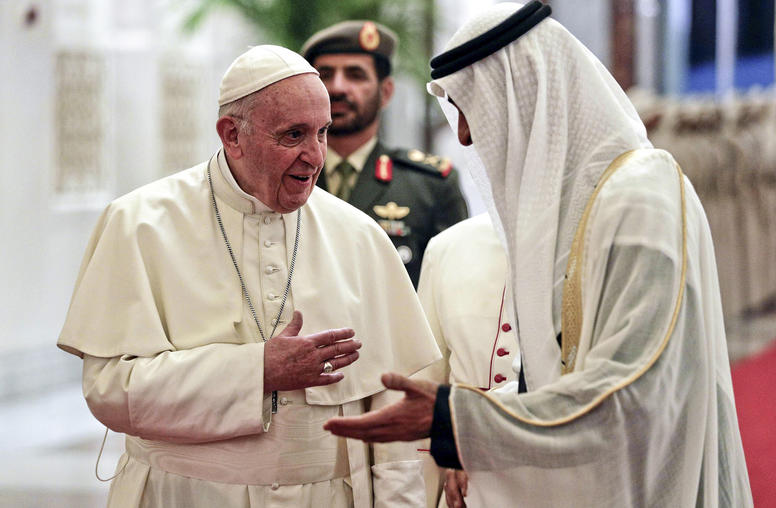
Pope Francis in the Cradle of Islam: What Might It Bring?
Pope Francis’ recent sojourn in the Arabian Peninsula was a powerful symbolic advance for interfaith dialogue: the first visit by a Roman Catholic pontiff to the original homeland of the Islamic faith. Francis joined eminent Muslim, Jewish and other Christian clerics in an appeal for the communal coexistence so desperately needed by a world suffering violence and persecution across humanity’s religious divides. The visit’s moving imagery included Christians and Muslims together attending the first papal mass on the peninsula. Yet this powerful symbolism will have real impact only if it inspires us all to take concrete steps—notably by governments, educational institutions and faith-based organizations.